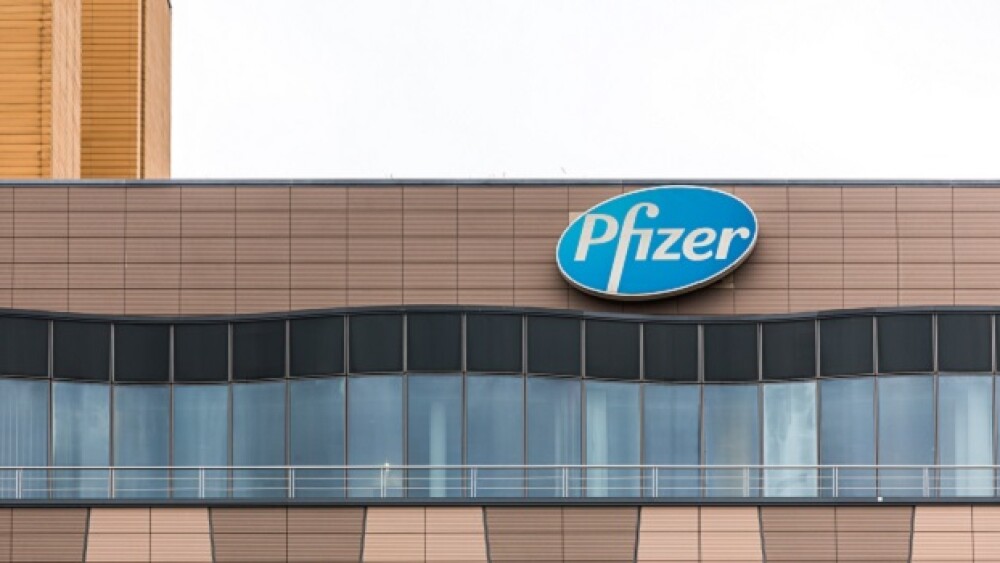Overcoming an FDA rejection in January 2022, Pfizer and OPKO’s Ngenla will provide a long-acting, reduced-frequency treatment option for children with growth hormone deficiency.
Pictured: Pfizer logo on a building/Adobe Stock, Tobias Arhelger
The FDA has approved a new treatment for children whose production of growth hormones is impaired. Somatrogon-ghla, a human growth hormone analog developed by Pfizer and OPKO Health, will be marketed as Ngenla.
Ngenla is a once-weekly, long-acting subcutaneous injection for children aged three years and above. Its label bears warnings for severe hypersensitivity, pancreatitis, glucose intolerance and diabetes mellitus and a heightened risk of neoplasms, among other side effects.
Wednesday’s approval of Ngenla will help “reduce the treatment burden that can come with daily growth hormone injections” in children suffering from a deficiency in this hormone, Joel Steelman, a pediatric endocrinologist at Cook Children’s Health Care System, said in a statement.
“As a new, longer-acting option that has the ability to reduce treatment frequency from daily to weekly, Ngenla could become an important treatment option that can improve adherence for children being treated for growth hormone deficiency,” Steelman said.
The pharma partners expect to launch Ngenla in the U.S. in August 2023.
Affecting only one in approximately 4,000 to 10,000 children, growth hormone deficiency is a rare disease that arises due to the insufficient production of the growth hormone somatropin. Children with this condition experience stunted growth, leading to delayed puberty and short stature in adulthood.
Growth hormone deficiency can also compromise other aspects of a child’s physical health, such as bone and cardiovascular health, as well as mental wellbeing.
Originally discovered and developed by OPKO, Ngenla works by replacing the deficient growth hormone in the body, according to the company’s website. Compared with Pfizer’s Genotropin (somatropin), an FDA-approved medicine for pediatric growth hormone deficiency, Ngenla is designed to last longer in circulation and allow for less frequent injections.
In December 2014, Pfizer inked a global agreement with OPKO for Ngenla. For $295 million upfront and a promise of $275 million in milestones, Pfizer purchased exclusive commercialization rights to Ngenla worldwide. In January 2022, the FDA rejected Ngenla’s first regulatory bid, though the partners did not provide specific reasons for the denial.
Pfizer and OPKO supported their resubmission with data from a randomized, open-label and active-controlled Phase III study, which showed that compared with Genotropin, Ngenla induced non-inferior improvements in annual growth rate at 12 months. Ngenla was also safe and had an adverse event profile similar to that of Genotropin.
Tristan Manalac is an independent science writer based in metro Manila, Philippines. He can be reached at tristan@tristanmanalac.com or tristan.manalac@biospace.com.






